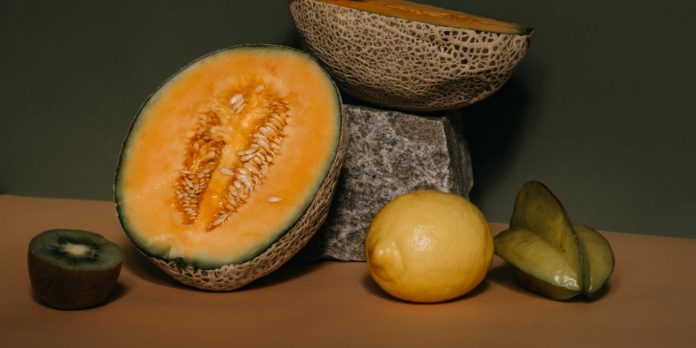What Is Abiu Fruit?
Abiu, scientifically known as Pouteria caimito, is a South American tropical fruit native to Colombia, Peru, Brazil, and Venezuela. The Sapotaceae family includes this fruit. Abiu fruit is also known as Blueberry Pie, Yellow Star Apple, and Abiu. The Abiu tree prefers a humid and warm climate. The leaves are oblong to elliptic in shape and range in size from 10 to 25 cm long by 40 to 55 mm wide at their widest point. The flowers appear in two to five clusters on long, thin stalks in the leaf axils. These little flowers have four to five petals that are cylindrical in shape and range in color from white to greenish. The abiu fruit has translucent flesh with a caramel flavor and approximately 5 seeds. One can eat this fruit straight from the tree or add it to salads.
Nutritional Properties of the Abiu Fruit
Minerals, vitamins, and other vital components are abundant in abiu fruit. Iron, potassium, calcium, sodium, manganese, selenium, copper, magnesium, and phosphorus are just a few of the minerals that can be found in the fruit. Vitamin A, thiamine, vitamin C, folates, niacin, pantothenic acid, and choline are just a few of the vitamins present in abiu fruit. Abiu fruit is also high in dietary fiber and energy. The fruit’s best quality is that it contains no cholesterol.
12 Amazing Health Benefits of Abiu Fruit
Boosts the Immune System
One of the best health benefits of abiu fruit is that it boosts your immune system. This is due to the fruit’s high vitamin C concentration, which is essential for the health of our immune system. Vitamin C, as a potential antioxidant, aids in the fight against free radicals, preventing them from causing oxidative damage to the body’s healthy cells and therefore protecting our immune system’s macular degeneration.
Apart from that, vitamin C helps to promote the development of EBCs, which are a crucial component of our immune system that protects us from foreign invaders like viruses and bacteria.
High Fiber Content
The next health benefit of the Abiu fruit is its high fiber content. Are you familiar with the benefits of fiber? Fiber may help with weight reduction and, in addition, it can simply optimize a digestion system, conquer and stop bowel difficulties, and halt a variety of digestive issues. If you want to improve your digestive health, simply eat meals or even fruits that are strong in fiber content, one of which is the abiu fruit.
Improves Eye Health
 The abiu fruit is high in vitamin A, which is the most important nutrient for keeping your eyes healthy. These nutrients have a high antioxidant capacity, which helps to neutralize the harmful effects of free radicals that cause oxidative stress in cells, including those in your eyes. As a result, the fruit’s antioxidant properties are critical for reducing the chance of developing a variety of eye problems, such as cataracts and macular degeneration.
The abiu fruit is high in vitamin A, which is the most important nutrient for keeping your eyes healthy. These nutrients have a high antioxidant capacity, which helps to neutralize the harmful effects of free radicals that cause oxidative stress in cells, including those in your eyes. As a result, the fruit’s antioxidant properties are critical for reducing the chance of developing a variety of eye problems, such as cataracts and macular degeneration.
Promotes Good Digestive Health
Abiu fruit has yet another health benefit, this time in the area of digestive health. As previously stated, this fruit contains a high level of fiber, which aids weight loss, as well as the improvement of one’s digestive system, hence removing a variety of bowel and digestive ailments. Eating abiu fruit on a daily basis can help to enhance your digestive health.
Prevents Cancer
Another significant health benefit of abiu fruit is that it helps to prevent cancer of many forms. The fruit has anti-carcinogenic characteristics, which aid in the prevention of a variety of cancers, including breast cancer, lung cancer, and stomach cancer. Furthermore, the fruit is high in vitamin C, which is a powerful antioxidant that fights dangerous free radicals and prevents them from causing oxidative damage to good human cells. The primary cause of cancer is usually free radicals. The folate found in abiu fruit is another antioxidant that helps to reduce the risk of cancer.
Lowers Risk of Diabetes
Abiu fruit has also been linked to a lower risk of diabetes. It has a low glycemic index, which means that eating it on a daily basis will not raise your blood sugar levels. As a result, diabetic patients can eat this fruit without anxiety. Furthermore, the high dietary fiber content of this fruit contributes to decreasing the absorption of sugar into the bloodstream and lowering blood sugar levels, thereby lowering the risk of diabetes.
Improves Respiratory Health
Because the fruit contains a large number of antiviral and antibacterial characteristics, it is quite beneficial to our respiratory health. Several studies have shown that eating the fruit regularly can help to reduce the creation of mucus and phlegm in the respiratory tract, as well as prevent viral and bacterial infections. Aside from that, the fruit is recognized for its antioxidant capabilities, which aid in the prevention of oxidative damage to respiratory tract cells produced by damaging free radicals.
Promotes Heart Health
One of the most beneficial health effects of abiu fruit is that it improves cardiovascular health. Various studies have shown that regular eating of the fruit is beneficial to cardiovascular health; this is because the fruit aids in the reduction of LDL or bad cholesterol in our bodies while also aiding in the improvement of HDL or good cholesterol levels. LDL, or bad cholesterol, is the root cause of a number of chronic cardiac illnesses. Furthermore, abiu fruit is high in vitamin C, a powerful antioxidant that fights free radicals and stabilizes them so that they do not cause oxidative damage to cardiovascular tissues or cells.
Promotes Healthy Skin
 The abiu fruit is also well-known for its skin-health benefits. This is due to the fruit’s antibacterial and antioxidant characteristics which aid in the prevention of a variety of skin ailments. The antioxidant in the fruit aids in the battle against free radicals and the prevention of oxidative damage to skin cells, which is the root cause of a variety of skin problems including dark spots, wrinkles, and other symptoms of aging. This fruit’s antibacterial properties help to protect the skin from external invaders such as bacteria and viruses, which are the main causes of illnesses such as sores and acne.
The abiu fruit is also well-known for its skin-health benefits. This is due to the fruit’s antibacterial and antioxidant characteristics which aid in the prevention of a variety of skin ailments. The antioxidant in the fruit aids in the battle against free radicals and the prevention of oxidative damage to skin cells, which is the root cause of a variety of skin problems including dark spots, wrinkles, and other symptoms of aging. This fruit’s antibacterial properties help to protect the skin from external invaders such as bacteria and viruses, which are the main causes of illnesses such as sores and acne.
Strengthens Bones
What could be better than the amazing bone-building properties of abiu fruit? The abiu fruit is well known for its bone-health advantages. We already know that calcium is vital for bone health, and because this fruit is high in calcium, eating it on a daily basis may help you develop stronger and healthier bones. Furthermore, this fruit is high in manganese, a mineral that supports the repair and regeneration of our bone tissue and is vital for healthy and strong bones. Aside from that, abiu fruit is abundant in antioxidants, which protect bone tissues from free radical oxidative damage.
Antimicrobial Activity
Antibacterial, antifungal, antipyretic, anti-tumor, anti-inflammatory, and antipyretic properties have been found in abiu fruit. Terpenoids, alkaloids, lapachol, flavonoids, benzoids, and phenylpropanoids were discovered in a study, and they are responsible for a wide range of biological functions. The antimicrobial activity of the abiu fruit has yet to be identified in terms of evaluating antibacterial and cytotoxic potential in the context of bacterial and fungal infection control.
Rich in Vitamin B3
Vitamin B3 plays a role in glucose metabolism, fat metabolism, and alcohol metabolism. Vitamin B3 is made up of two coenzymes, NAD and NADP, which are required for metabolic processes such as glucose, fat, and alcohol. Vitamin B3 is beneficial to the skin, the central nervous system, and the digestive system.
Now that you Know…
With all of the health benefits of abiu fruit listed above, it is apparent that the fruit may be considered one of the greatest fruits for maintaining good health and treating a variety of disorders. So, try to incorporate this fruit into your daily diet in any way you can; whether it’s as fresh raw fruit, in salads, or in puddings, and reap the advantages.




